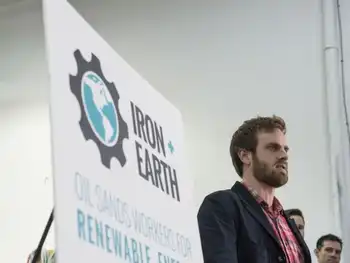Ontario wants Federal help for coal plant shutdown
By Canadian Press
Protective Relay Training - Basic
Our customized live online or in‑person group training can be delivered to your staff at your location.

- Live Online
- 12 hours Instructor-led
- Group Training Available
"We have raised with Ottawa the fact that replacing coal-fired generation will be a major step in meeting Ontario's Kyoto targets and probably the largest single action this country will undertake for Kyoto," Energy Minister Dwight Duncan said in a speech delivered recently to the Canadian Energy Efficiency Alliance.
"We feel that's a pretty good reason to ask the federal government for help, and those discussions are ongoing.
"We're talking, and I'm optimistic, but I'm certainly not betting our lights on the results."
Ontario's Liberal government promised during last fall's election that by 2007 it would shut down the province's five coal-fired electricity generating plants, which produce about 25 per cent of the province's electricity.
Duncan reiterated that commitment again in his speech.
In a copy of the speech, Duncan said the province is going to have to be creative in how it replaces that electricity capacity, which has led to the talks with Ottawa.
The goal of the Kyoto accord is to reduce greenhouse gas emissions around the globe.
The Sierra Club has said Ottawa could obtain a 38-megatonne cut in greenhouse emissions by helping Ontario phase out its coal-fired electricity plants.
Since there's no guarantee of help from Ottawa, Duncan said the province has now hired a technical advisor, who hasn't yet been named, to oversee a competitive contracting process to deal with Ontario's immediate supply issues and to increase renewable energy capacity.
Duncan said the province wants 2,500 megawatts of new generation capacity and energy conservation initiatives in place by 2007, and wants 300 megawatts of renewable energy in place as soon as possible. Together this represents one-third of the energy needed to replace the coal-fired plants, he said.
Although Duncan addressed the need for new energy, the main thrust of his speech to the Canadian Energy Efficiency Alliance was the fact that conservation has to be a priority.
"Conservation, including energy efficiency, is one of the single-most important things we can do over the long-term with respect to our power supply," he said.
As part of its conservation efforts the province is considering what Duncan called "a 'beer fridge' bounty program," which would get old, inefficient appliances out of people's basements.
Duncan said the province has received some good advice General Electric about establishing such a program.
Old appliances suck up a huge amount of power in comparison to new, energy-efficient ones.
Ontario is also working with local electricity distributors to implement conservation programs, he said.
Starting next year, the province's local electricity distributors will earn their full commercial return if they re-invest a year's worth of that money in conservation and demand management programs, an amount that could total about $225 million.











